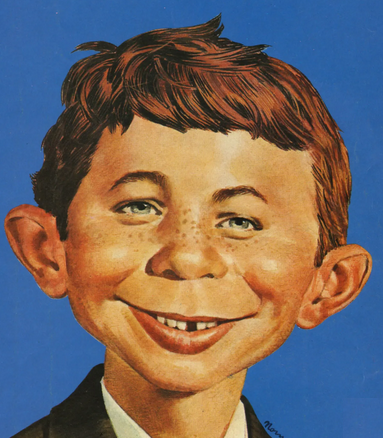Seriously, on a daily basis I’ll either bump my head or various other body parts, drop stuff and then drop it again, stumble over something and combinations of all of that.
Send help.
Edit: thank for the suggestions, I will start by focussing on what I’m actually doing at the time and try to be more active - I work from home and sit a lot.
So a lot of people that I know that are pretty clumsy are those people that are always in a rush or moving too quickly. They always have something else on their mind other than being in the present.
So some tips are to just be more observant. I know that’s an easy thing to say, and in practice it’s much more difficult, but just check your surroundings and pre-plan movements in your head. If you see something that you could bump your head into, make a mental note that you need to give it more space than you’re thinking. If you’re always dropping something, then make a plan to put it into place where it won’t fall. Like grabbing your phone and putting it in your pocket or your purse.
I think linear thinking helps reduce clumsiness. To get into mindset of following steps a, b, and c when performing a task could help. That being said, I am no expert and we all are clumsy from time to time.
That actually makes sense. My mind is always wandering and random stuff pops up that I’ll think about. I didn’t realize that sort of distraction could have physical effects like clumsiness.
My mind is the same way. I’m diagnosed ADHD and have both extreme difficulty focusing while also being able to hyper-focus on specific tasks that peak my interests. I have my clumsy moments as well, but I also really practice linear thinking in my day to day tasks. For example, I have my checklists for when I leave the house, for when I’m moving around a cluttered space or unfamiliar space, etc.
My nickname has been “Crash” for most of my life because I’m a very accident-prone person. Over the years I’ve learned to slow down and move with purpose by taking a split second to think “what am I about to do here?” before taking action.
I notice when I’m in a rush I tend to stumble and drop things a lot so I try to avoid that by planning ahead when I have time. This usually means getting seasonings out while the pan is still heating up, getting my things around for work the night before, or just generally preparing for what I know is coming.
I’ve also learned to NOT stand up quickly near cabinets (I have scars from this lesson), push doors all the way open if I’m passing through (it’s always that one belt loop), and not leave things lying around in the middle of the floor (some dog toys are worse than legos). Just generally trying to be more aware of your surroundings.
Slow down, concentrate only on what you’re doing, act deliberately.
Look into proprioception; simply put, if you’re unfamiliar, proprioception is essentially the ability to perceive the boundaries of your body/where you are in space and/or in relation to things like furniture, that uneven section of the sidewalk, door frames, other people, etc. Some people have lower proprioception.
Low proprioception can also result in reduced perception of physical stimulation; this might look like someone who:
-
throws themselves onto the couch,
-
hugs too hard,
-
regularly gives a painfully strong handshake,
-
often talks too loud,
-
drops things frequently, etc.
It’s already been mentioned that folks on the ADHD and/or autism spectrum are more likely to have low proprioception, so if you see yourself (or as you were as a child, since many descriptions are centered around ways this would present in children) in some descriptions of common experiences of those with low proprioception and also diagnosed with ADHD and/or autism, you may find value in pursuing assessment yourself (this was the case for me, diagnosed at 38). Or you may not.
Either way (associated with a medical diagnosis or not), proprioception can be improved if there is interest in doing so. For example, movements that cross the body are helpful in increasing awareness of where your body is in space, which can increase awareness of where other things are in space as well. For me this led to not only the anticipated outcome of fewer run-ins with tables, doorframes, etc, but also reduced frequency for things like dropping my keys, knocking over drinks, all forms of spilling on myself, and tripping over stuff.
FYI the way you improve proprioception as a daily practice is that you play drums. They all count. Digi drums, rock drums, Djembe drums, any drums, anything that calls itself drums. So long as you trigger the drum sounds with your body, in time (fingers on a sampler counts) we’re after the whole body focusing itself around the hands to create precise enough results. Just hands on your belly works. Honestly all of music is good for this. It is actuating the whole of your body in space to achieve a result, and the human body loves it. Proprioception.
Yes! I agree. Making music/drum beats incorporates so many different body systems, it can definitely improve proprioception.
Interesting. I always wanted to play the drums but figured I was too uncoordinated.
-
In all seriousness: get screened for ADHD and autism.
OP, this person knows what they’re talking about. One of the screening questions when I was diagnosed with ADHD had to do with clumsiness. My own parents used to call me, “An accident waiting for a place to happen.”
I have slowly been able to improve my clumsiness a little bit, by exercising regularly with a trainer 5 days a week. One of those days is a balance-focused day and after 2.5 years I’m actually able to hold poses and (mostly) stay upright and steady. But it was SLOW going.
The night before my 50th birthday, after I had been taking this class for 7 months, my husband and I were on a sunset cruise and his phone fell out of his pocket and over the side of the ship. I reached out with one hand and successfully caught it. THAT KIND OF THING NEVER HAPPENS TO ME!
I celebrate that day every year as much as my birthday now. I managed to show off hand eye coordination before I was 50!
Get screened… :)
Oh.
Along with the suggestions to check for neurospiciness; general balance work and things like ballroom dance, yoga, and martial arts are really helpful to increase proprioception and generally get you feeling more “in” and “connected” to your body.
EDIT: punctuation for better clarity
You might try to learn somehting to connect better to your body. could be anything from sports, Tai Chi, Qigong really. Since I started to practise Qigong every day, i became less clumsy and even if somehting slips out of my grip I can grab it before it hits the floor now, really neat!
I felt my balance and coordination improve after about a month of lifting weights.
Small suggestion, research drop foot. A small amount of nerve damage can cause the foot to drag a bit and will cause falls and clumsiness.
There are probably other suggestions that are better. But I noticed getting a lot more coordinated after starting to rock climb. It involves a lot of very focused and timed body movement, keeping track of your center of gravity(balance) and how forces and movement travel through your body. Things like dancing and bodily awareness became a lot more effortless after climbing.
1 how old are you? When your body is growing it’s hard to have a sense where you end. 2. I’ve had vitamin deficiency that affected my mood and coordination.
41 in 2 months. I’ve always been clumsy though
That was my question, too. When I had a growth spurt in my teens, my shoulders and forehead constantly had bruises from banging into things (I think I hit my shoulders on every doorway for a while). Oh, and my feet grew, too, so I was constantly tripping on things. But once I stopped growing it stopped happening.
deleted by creator
How old are you? I used to feel like that when I was 16 ish. It went away when I was in my 20s
Agree with observations above. It could be related to ADHD. I also wonder if you experience chronic pain of any kind? Those are the two factors that can cause clumsiness in me. Good luck!
Try to practice more activities that require a lot of coordination, like riding a unicycle or juggling.
Why or? I say unicycling and juggling
Clearly OP needs to also be juggling knives, too!













